Ear song
Ear song
"Earsong" is also known as "Decorative Red". In Bai language, "ear" means simple son, and "song" means dance. It originated in the mountainous Bai nationality inhabited area of Jiancao area. Up to now, as long as there are marriages in the countryside, they have to perform ear songs. It belongs to folk Nuo culture performance.
The performance of Earsong aims at the inheritance of moral culture, suggesting the mystery of "the beginning of man", praying for the harmony and happiness of husband and wife, and the simple truth of prosperity of family. It is the transmission of the concept of human reproduction and reproduction.
The whole activity of Earsong is divided into three stages. The first "Earsong Banquet" is carried out with "Three Blows and Three Strikes", "Lion Greeting Shed", "Central Guest Attendance", "Vegetable Dance" and "Ear Grabbing Red Meat".
The second performance is "Ear Marriage", "Blocking the Gate", "Worshipping the God of Joy" (Reproductive Worship), "Order the name of dishes", "Ear Dance" and "Judging the case".
The third performance is "Ear Prayer", including "Sacrifice to the Earth God", "Rise the Five Ways of Earth", "Send the Earth God" and so on.
The ear song activity takes about 30 minutes. Activities are held in the evening in the courtyard and lobby of the married couple. The dialogues in the couplets and performances are written in Bai language (the performance is to achieve linguistic communication, using Tu-Han dialect), and the tune is Yunlong tune (Bai folk song). The harmonious language of dialogues and ordering names occasionally arouses applause and laughter on the field, and gives the audience the basic principle of "being a man" and the Heirloom magic weapon of "home and everything".
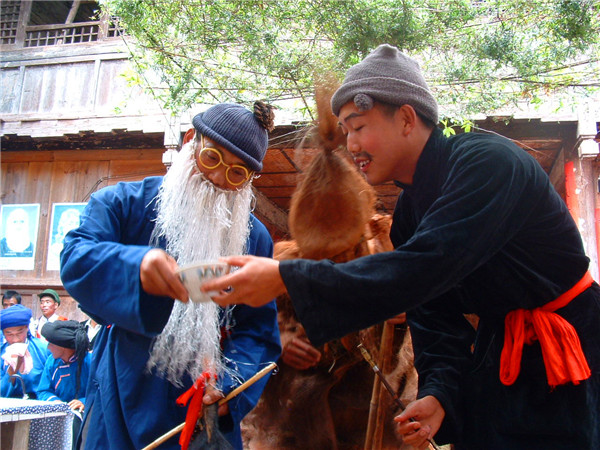
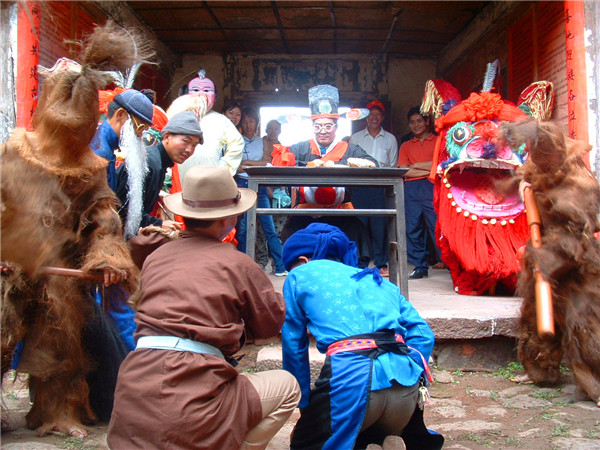
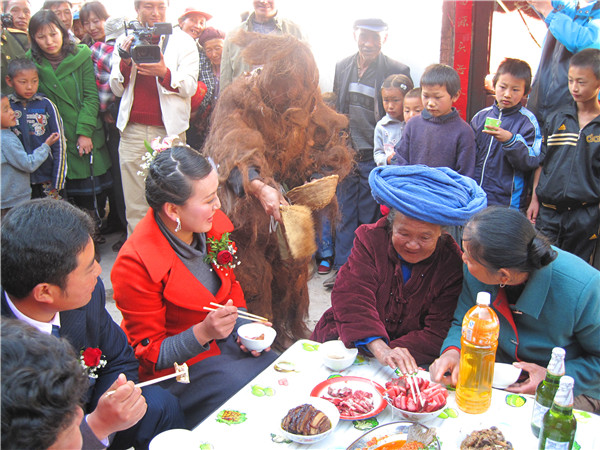
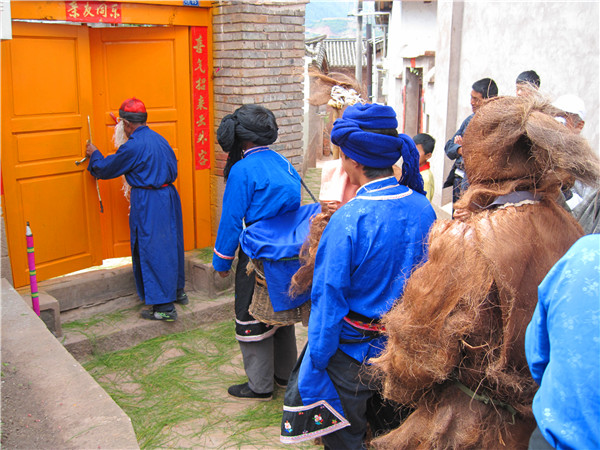
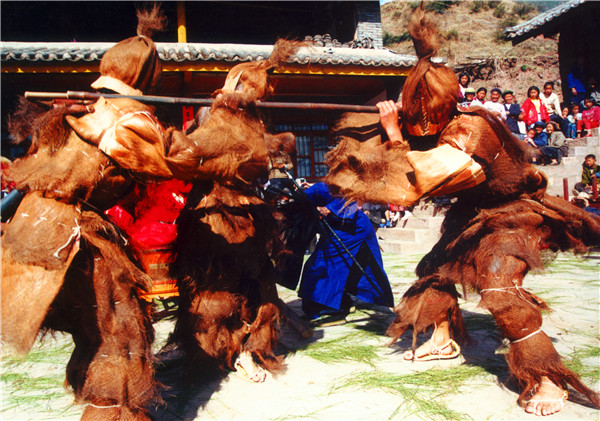
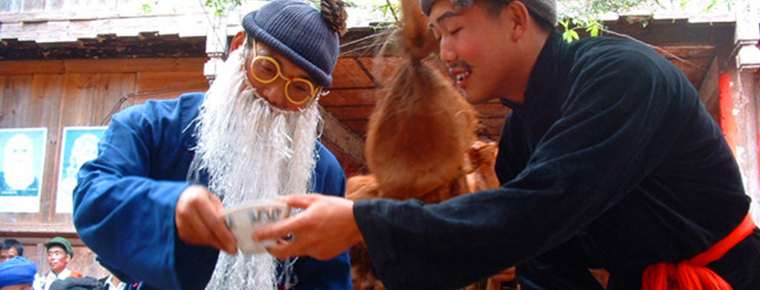
-
1.Ancient town of Shaxi
Shaxi is located in the southeast of Jianchuan in Dali, Yunnan Province, China
Time 2018-10-17 -
2.Henan Mayuxing Barrel Chicken
Henan Mayuxing Barrel Chicken is a famous specialty dish in Kaifeng. It is famous for its bright yellow color, salty fragrance, tender crisp, fat but not greasy
Time 2018-11-25 -
3.China Yellow River Building
The Yellow River Building of China has the Yellow River China History and Culture Exhibition Hall, the Yellow River Ningxia History and Culture Exhibition Hall, the Yellow River Impression Exhibition
Time 2018-12-22 -
4.Nanhai Temple
Nanhai Temple, also known as the Polo Temple, is a place where ancient Chinese laborers worship the sea. Located in Miaotou Village, Huangpu District, Guangzhou
Time 2018-12-31 -
5.White Deer hot spring bailu hot spring
Bailu Hot Spring is a hot spring resort center built according to the national AAAA scenic standard. Located in Wentang Town, Pingshan County, Shijiazhuang City, Hebei Province, Bailu Hot Spring is a
Time 2019-01-02 -
6.Yongquan Qicheng Great Wall Ecological Scenic Area
The Great Wall of Yongquan Qi is a quiet tourist scenic spot, located in Yongquan Village, Zihe Town, Zibo City, where Pu Songling lived in the southeast mountain area. Here the mountains are connecte
Time 2019-03-05 -
7.Buyi Folk Songs
Bouyei folk songs have special features, such as ancient songs, narrative songs, love songs, wine songs and labor songs; solo, duet, chorus and duet in form; tunes are divided into major and minor. Ev
Time 2019-04-04 -
8.March Street Dali
"Yuejie", or March Street of Dali, also known as "Guanyin City, also known as the March Meeting of Dali, today also known as the National Day of March Street, is a grand festival and st
Time 2019-04-23 -
9.Buddha Han boxing
Fohan boxing is also known as Fohan Chuan, commonly known as Buddhist boxing. It is a kind of traditional Chinese martial arts. This boxing originated in Shaolin Temple
Time 2019-04-29 -
10.Lusheng Dance of Lahu Nationality
Hulusheng dance is a representative of the Lahu nationality. It mainly spreads in busy Nuo Township, Mengmeng Township, Dawen Township, Mengku Township and other Lahu villages in Shuangjiang
Time 2019-05-10 -
11.Shannan Menba Opera
Because Shannan Menba Opera directly adopts Tibetan scripts of Tibetan Opera, it is called "Menba Aguiram" by the people, that is, Menba Tibetan Opera. Legend has it that at the end of the 1
Time 2019-06-13 -
12.Meishan Education
By the end of 2019, there are 824 schools of various types, including 435 kindergartens, 176 primary schools, 165 junior high schools, 26 senior high schools, 17 secondary vocational schools and 5 special schools. By the end of the year, there were 397900 students
Time 2020-12-18